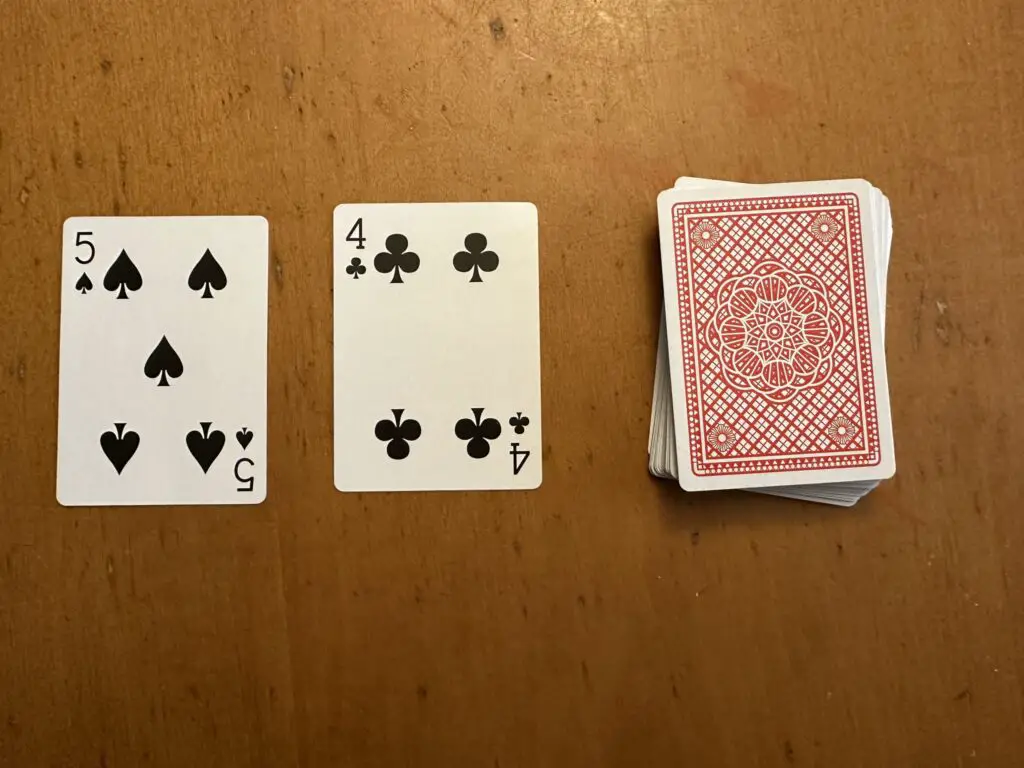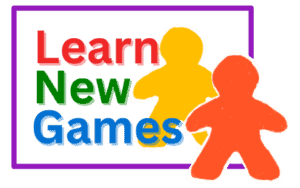In the realm of education, finding creative and engaging methods to teach fundamental math skills to children can sometimes feel like navigating a treacherous mountain terrain.Games designed to sharpen basic addition skills while igniting a sense of excitement and competition can be the perfect fit for teaching skills without the humdrum of worksheets.
Overview
Addition Avalanche is a rapid-fire card game where players compete to solve addition equations swiftly. Using a deck of numbered cards, participants race against each other, flipping cards and mentally calculating sums. The game hones quick thinking, mental math skills, and strategic decision-making as players aim to be the first to call out correct answers.

- 2+ players
- 10-15 min game-play
- Ages 6+
- Great for teaching specific addition families 2-10
Game Set Up
Players need:
- A deck of cards. Remove the face cards and set aside. They won’t be used in play.
- Timer (optional)
- Printable Addition Avalanche sheets – great for math centers, optional

Check out these optional easy to read numbered cards perfect for math centers from Amazon: https://amzn.to/42Jp436
For first time players, it can be helpful to show the cards before playing and explain that the A (Ace) stands for the number one. While this can be played with any number of players, in a classroom or large group it might be easier to divide into small groups of 3-5 players.
Options to decide who is the start player might include and could be a great way to learn about their fellow players :
- Birthday Day (2nd, 3rd, etc)
- Birthday month then day
- Who has the most pets, siblings, etc
Or you can go the more traditional route and:
- Each player pulls a card from the deck, the lowest (or highest card) goes first
- Each player rolls a die, highest (or lowest) goes first
Shuffle the deck and place it face down in the middle of the playing area in reach of all players. If using a timer, decide on the time limit; 1-2 minutes per round.
Gameplay
There are 2 ways to play depending on the skill level of players.
Option 1: For younger players needing to practice a particular set of addition families, pull specific cards or use these printable numbers as half of the equation.
The designated start player begins by flipping over the top card and lays it on the table in view of all players to reveal a math equation. (e.g., 2 + 3 = ?).
All players race to solve the equation mentally and call out the correct answer.
A player who correctly solves the equation first wins the round and keeps the cards as points.
If a player calls out the incorrect answer, they are temporarily out of the round, and play continues among the remaining players.
Repeat steps 2-5 for each card in the deck until the time limit for the round is reached or all cards have been played.
Option 2: The designated start player begins by flipping over the two top cards and laying them on the table in view of all players to reveal a math equation. (e.g., 2 + 3 = ?).
All players race to solve the equation mentally and call out the correct answer.
A player who correctly solves the equation first wins the round and keeps the cards a points.
If a player calls out the incorrect answer, they are temporarily out of the round, and play continues among the remaining players.
Repeat steps 2-5 for each card in the deck until the time limit for the round is reached or all cards have been played.
Winning the Game
At the end of the round, players tally up their points based on the number of cards they’ve won. The player with the most cards wins.
Variations:
- Increase the difficulty by using two-digit addition equations.
- Include subtraction or multiplication equations for added challenge.
- For younger players, use visual aids like counters or number lines to help them visualize the addition process.
Notes
Children love to share their knowledge. Encourage children to play the game with their family. This free printable explains the rules that can be sent home with the student to encourage their learning.
This and other games are perfect for math center & math game stations. Check here for other learning games.
Looking for other math games to encourage learning in a fun and friendly way? Check out these games:
